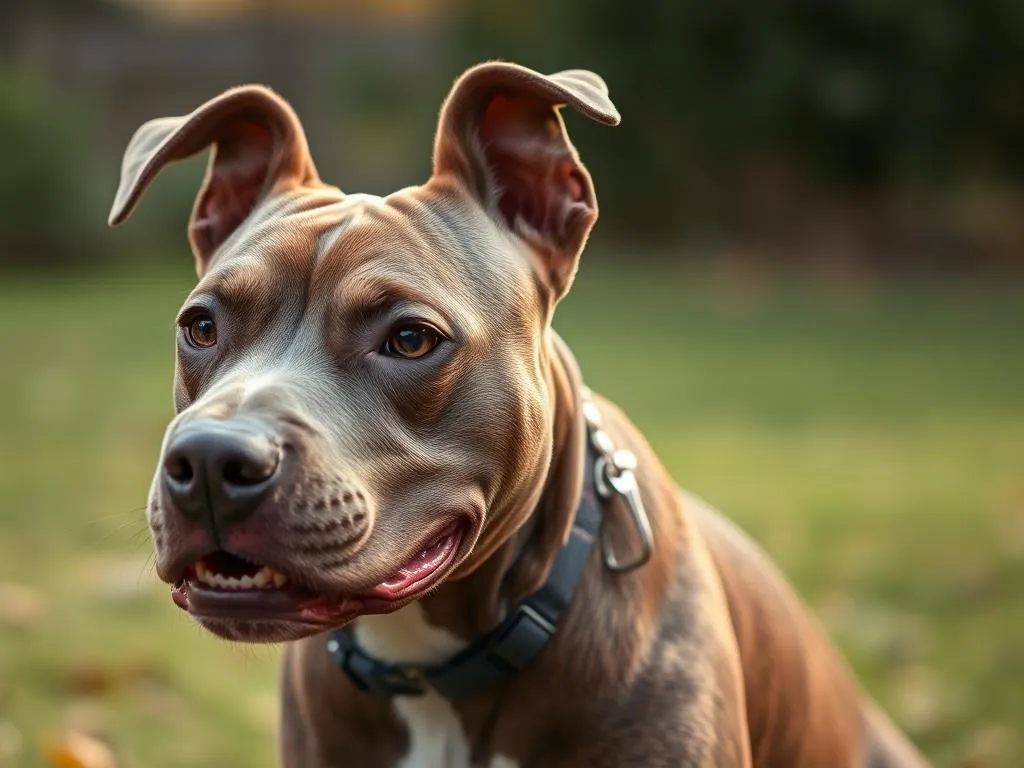
Introduction
When it comes to choosing the right dog breed for families with children, many parents ponder the question: will a pitbull be good with my kids? This inquiry is not merely a matter of preference; it involves understanding the breed’s temperament, behavior, and historical context. Unfortunately, misconceptions abound regarding Pitbulls, often painting them in a negative light.
The purpose of this article is to provide valuable insights into the temperament of Pitbulls, especially in relation to children. By doing so, we aim to help parents make informed decisions when considering adding a Pitbull to their family.
Understanding Pitbulls
What is a Pitbull?
The term “Pitbull” generally refers to several breeds, predominantly the American Pit Bull Terrier and the American Staffordshire Terrier. These breeds were originally developed in the 19th century for bull-baiting, but they have since evolved into beloved family pets.
Historically, Pitbulls were bred for their strength and tenacity. However, they were also valued for their loyalty and affectionate nature towards humans, which is crucial to understanding their behavior today.
Common Misconceptions
One of the most prevalent myths surrounding Pitbulls is that they are inherently aggressive. This misconception often stems from media portrayals and sensationalized reports of dog attacks. It’s essential to address these myths head-on, as they can significantly influence a family’s decision about dog ownership.
Pitbulls, like any breed, can exhibit aggressive behavior, but this is often a reflection of poor training, lack of socialization, or irresponsible ownership rather than the breed itself. With proper training and socialization, many Pitbulls are affectionate, friendly, and well-suited for family life.
Temperament and Behavior of Pitbulls
General Temperament Traits
Understanding the general temperament of Pitbulls is crucial for families considering this breed. Typically, Pitbulls are known for their loyalty, energy, and playful nature. They are often eager to please their owners, which makes them relatively easy to train compared to some other breeds.
In comparison to other family-friendly dog breeds, such as Golden Retrievers and Labradors, Pitbulls can be just as loving and gentle. They thrive on companionship and are known to form strong bonds with family members.
Socialization and Training
One of the most critical aspects of raising a Pitbull in a family setting is early socialization. Exposing your Pitbull to various environments, people, and other animals helps create a well-rounded dog. This socialization should begin at a young age and continue throughout the dog’s life.
Effective training methods are also essential. Positive reinforcement techniques, such as treats and praise, work well with Pitbulls. There are numerous resources available for training, including classes, books, and online courses. Engaging in training not only strengthens the bond between the dog and family but also helps develop a well-mannered family pet.
Pitbulls and Children
Natural Instincts and Behaviors
When considering will a pitbull be good with my kids, it’s important to understand their natural instincts. Pitbulls are inherently playful and energetic, making them great companions for children who enjoy active play. Their protective instincts also come into play; many Pitbulls are known to be particularly loyal and protective of their family members, including children.
Pitbulls as Family Dogs
Numerous case studies demonstrate the compatibility of Pitbulls with children. Many families have shared positive anecdotes of their Pitbulls interacting lovingly with their kids. These dogs often engage in playful activities, providing endless entertainment and companionship.
Statistics regarding dog bites often reveal that many incidents are not breed-specific but rather result from irresponsible ownership and lack of training. According to various studies, when properly trained and socialized, Pitbulls are no more likely to bite than other breeds. This highlights the importance of responsible ownership in ensuring a safe and loving environment.
Recommended Age for Children
While Pitbulls can be great with children, certain considerations should be made regarding the age of the children in the household. Typically, it’s recommended that families with younger children—especially toddlers—introduce a Pitbull with caution. Young children may not yet understand how to interact respectfully with dogs, which could lead to misunderstandings.
For families with older children, Pitbulls can make wonderful companions. Older kids can learn how to interact appropriately with the dog, helping to foster a respectful relationship. Regardless of the child’s age, supervision during interactions is always crucial.
Safety Tips for Families with Pitbulls
Supervision
Supervising interactions between Pitbulls and children is vital. Children should be taught how to approach and interact with the dog safely. Setting boundaries and teaching kids to respect the dog’s personal space can prevent accidents and misunderstandings.
Creating a Safe Environment
To ensure a harmonious household, families should focus on creating a safe environment for both the dog and the children. This can include:
- Dog-proofing the home by removing hazards that could tempt the dog.
- Designating safe spaces for the Pitbull where it can retreat if feeling overwhelmed.
- Educating children about appropriate behavior around dogs, such as not pulling on their ears or tail.
Recognizing Warning Signs
It’s essential for parents to recognize common signs of stress or discomfort in their Pitbull. These signs can include:
- Growling or lip curling
- Tense body posture
- Ears pinned back
Teaching kids to recognize these signs promotes a respectful relationship and ensures that the dog feels safe in its environment.
Responsible Ownership
Commitment to Training and Socialization
Owning a Pitbull requires a long-term commitment to training and socialization. It’s not just a one-time effort; consistent reinforcement of good behavior is necessary. Continued socialization throughout the dog’s life helps maintain its friendly disposition.
Choosing the Right Pitbull
When considering adding a Pitbull to your family, choosing the right dog is paramount. Families should look for dogs that have been well-socialized and have a temperament suitable for children. Assessing the dog’s behavior during initial meetings can provide valuable insights.
Visiting shelters or reputable breeders can help families find a Pitbull that matches their lifestyle and needs.
Conclusion
In summary, the question, will a pitbull be good with my kids, can be answered with a resounding yes, provided that families are prepared to invest time and effort into training and socialization. Pitbulls are loyal, affectionate, and can be wonderful companions for children when raised in a loving and responsible environment.
By understanding the breed’s temperament and history, as well as implementing safety measures and training, families can enjoy a fulfilling relationship with their Pitbulls.
Considering a Pitbull for your family? With the right approach, these dogs can thrive as part of a loving household.









